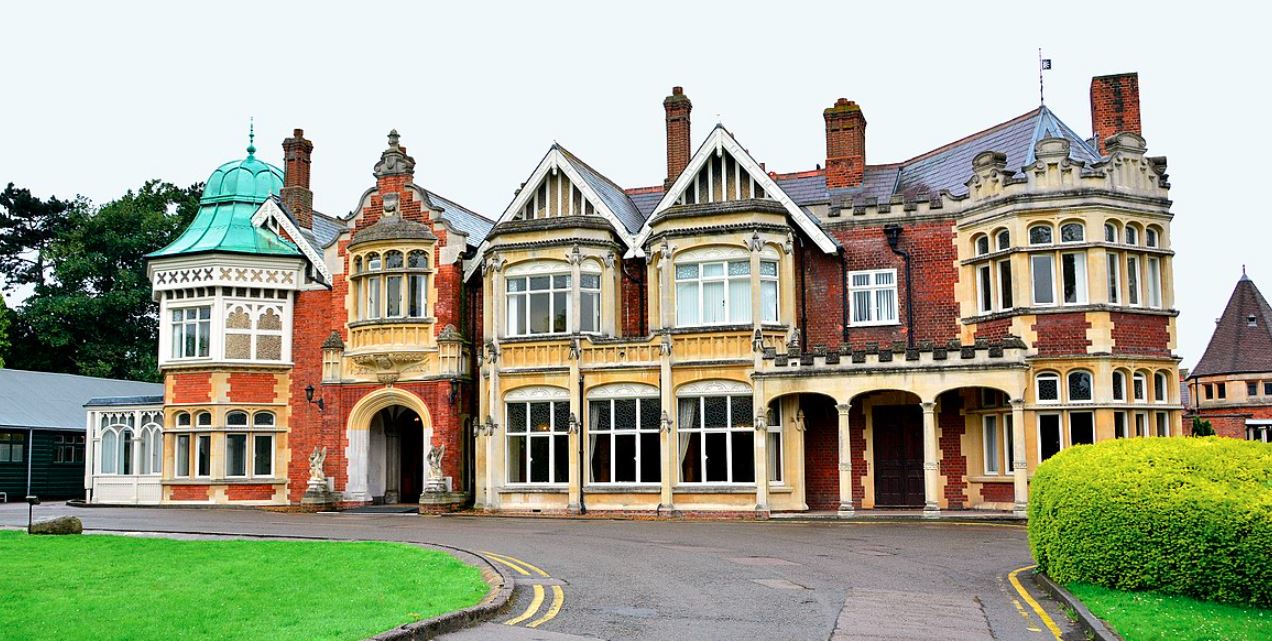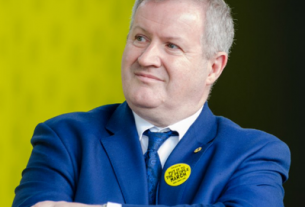Rishi Sunak has hailed the signing of the Bletchley Declaration by the US, China, EU and UK that warns of the potential of AI to cause “catastrophic harm” to the planet.
All 28 countries attending the prime minister’s AI Safety Summit signed the agreement to work together to combat the existential risks posed by the new technology.
The prime minister called the Bletchley Declaration “quite incredible” and added: “There will be nothing more transformative to the futures of our children and grandchildren than technological advances like AI.
“We owe it to them to ensure AI develops in a safe and responsible way, gripping the risks it poses early enough in the process.”
Israel and Ukraine are also attending the summit at the iconic Bletchley Park – home of World War Two codebreakers and the “birthplace of modern computing” – along with delegates from Australia, Brazil, India, Indonesia, Kenya, Saudi Arabia, Rwanda, Turkey, the UAE and members of the G7 (full list below).
China’s invitation to the summit has provoked a “fierce backlash from Tory critics,” the Telegraph reports. Former PM Liz Truss called on Sunak to “reconsider the invitation” while former Conservative leader Sir Iain Duncan Smith warned against “letting the cat in with the canaries”.
Sunak said it is “absolutely the right thing” to invite China to the AI safety summit.
His status has been buoyed by all 28 countries attending signing up to the Bletchley Declaration, which also marks a diplomatic success for the UK in getting world leaders to agree “to cooperate on AI to promote inclusive economic growth, sustainable development and innovation, to protect human rights and fundamental freedoms, and to foster public trust and confidence in AI systems to fully realise their potential.”
King Charles addressed business chiefs and senior politicians via video link from Kenya, calling AI “one of the greatest technological leaps in the history of human endeavour” that could be “no less important” than harnessing electricity, splitting the atom and the discovery of fire.
He added: “AI holds the potential to completely transform life as we know it: to help us better treat and perhaps even cure conditions like cancer, heart disease and Alzheimer’s; to hasten our journey towards net zero; and perhaps to realise a new era of potentially limitless clean green energy. Even just to make our everyday lives a bit easier.
“However, if we are to realise the untold benefits of AI then we must work together on combating its significant risks too.”
Speaking to the PA news agency on the first day of the summit, Elon Musk – owner of X, Tesla and Space X – warned: “For the first time, we have a situation where there’s something that is going to be far smarter than the smartest human … it’s not clear to me we can actually control such a thing.”
AI – named word of the year by Collins the dictionary publisher- is defined as “the modelling of human mental functions by computer programs”. Use of the word AI has quadrupled over the last 12 months. It was chosen by Collins from a list of words including “greedflation”, “debanking”, “nepo baby” and “deinfluencing”.
Managing director of Collins, Alex Beecroft said: “We know that AI has been a big focus this year in the way that it has developed and has quickly become as ubiquitous and embedded in our lives as email, streaming or any other once futuristic, now everyday technology.”
- The full list of countries that signed up to the Bletchley Declaration:
Australia, Brazil, Canada, Chile, China, European Union, France, Germany, India, Indonesia, Ireland, Israel, Italy, Japan, Kenya, Kingdom of Saudi Arabia, Netherlands, Nigeria, The Philippines, Republic of Korea, Rwanda, Singapore, Spain, Switzerland, Türkiye, Ukraine, United Arab Emirates, United Kingdom of Great Britain and Northern Ireland, United States of America.




